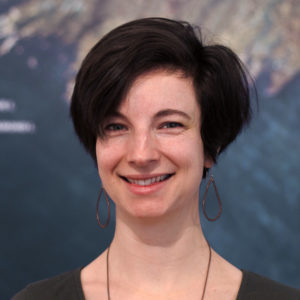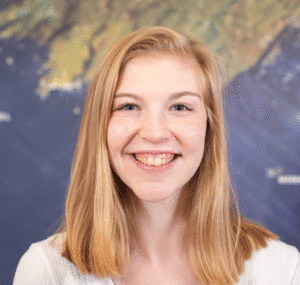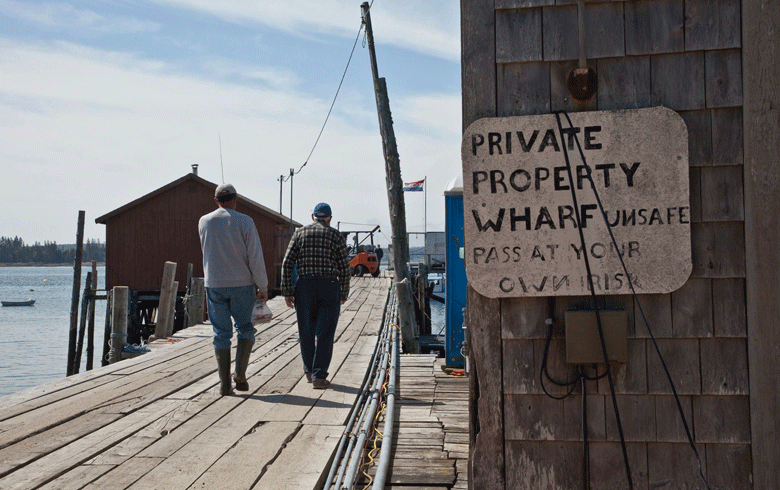Black flies and ice cream cones. These are my first memories of Downeast Maine. My family took me to Lubec for the first time when I was eight years old. When black flies attacked the back of my neck, my mom cleaned me up and the bath water turned pink with black flecks. We went back and forth to Campobello Island for the cheap ice cream cones because the American dollar was much higher than the Canadian one.
I also remember the feeling of summer in Maine. That summertime essence that we school-aged kids could soak up for three months of the year. People flowing in and out of the open shops and the other kids on the playground.
This July, two co-workers and I drove north and east to Great Wass Island. The island is connected by a bridge to Beals Island, off of Jonesport, and is the home of the Downeast Institute.
Hannah guided us through the facility with detailed explanations about the classroom, labs, and hatchery…
Once we left Ellsworth and the summer crowds bound for Acadia, Route 1 was quiet. Route 187 into Jonesport was even quieter, contrasted with the work chatter inside the car. As we hit the dirt road on Great Wass, I felt that stirring of discovery, when you visit an area where few people go.

I was excited to meet Hannah Greene, an Island Institute Fellow, and my mentee for the past year. Hannah lives on the island and supports the Downeast Institute’s education programs. Island Institute Fellows receive broad support, including an advisor from the organization at which they’re placed, Island Institute program staff, and a mentor. Up until that day, our entire mentoring relationship was virtual. I couldn’t wait to see where she spent her days.
Visiting the Downeast Institute felt like a school field trip without the noisy bus ride. It had reopened to the public only two weeks before and summer camps and families were eager to visit. A group of middle schoolers jostled around the touch tank in the lobby, betting on the marine life underwater. Would the lobster eat the crab? Would the skate or the cod reach the other side first?
Hannah guided us through the facility with detailed explanations about the classroom, labs, and hatchery while fielding our questions. Meanwhile, staff and interns bustled in and out of rooms, checking equipment and readings.
While the pandemic paused Hannah’s main project—growing the on-site programming for local schools—she jumped in to assist across the Institute. She wrote grant applications, peered through microscopes, counted over 1,000 clams, and created mobile kits and materials for students to explore ocean and shore ecosystems in their own classrooms.
Now that the Institute is open, Hannah has ramped up for summer programs and prepped for school visits come September.

Next up, Hannah led us into the conference room where she was running tech for the organization’s first ever climate change seminar. Downeast Institute’s research scientist, Dr. Robert Holmberg, and visiting researcher, Stony Brook University PhD candidate Ray Czaja, presented their findings on the effects of ocean acidification and rising temperatures on softshell clams. Half an hour earlier, we had visited Dr. Holmberg’s lab where research tech, Hannah Zuklie, described the experiments.
We left the bustle of the institute for a quiet drive through Beals with Hannah. As she pointed out her home, the school, and other sites, she shared some of the challenges of living in a remote community as a 20-something during a pandemic, including missing what we might take for granted elsewhere, like a social group our age or restaurants or food trucks to order takeout when you don’t feel like cooking.
Hannah said she appreciates the other Island Institute Fellows who live in the Downeast region, who she sees occasionally and connects with on weekly Zoom calls. She also spoke about the kindness of community members, baking cookies and being there for each other. This fall, Hannah will start her second year as an Island Institute Fellow. I’m excited to see her shine.
Visiting Hannah in Beals added new memories to my Downeast summer collection and I didn’t miss the black flies from my childhood.
Lisa Millette is a community development officer with the Island Institute, publisher of The Working Waterfront. She focuses on the marine economy, climate and energy, and small business.





